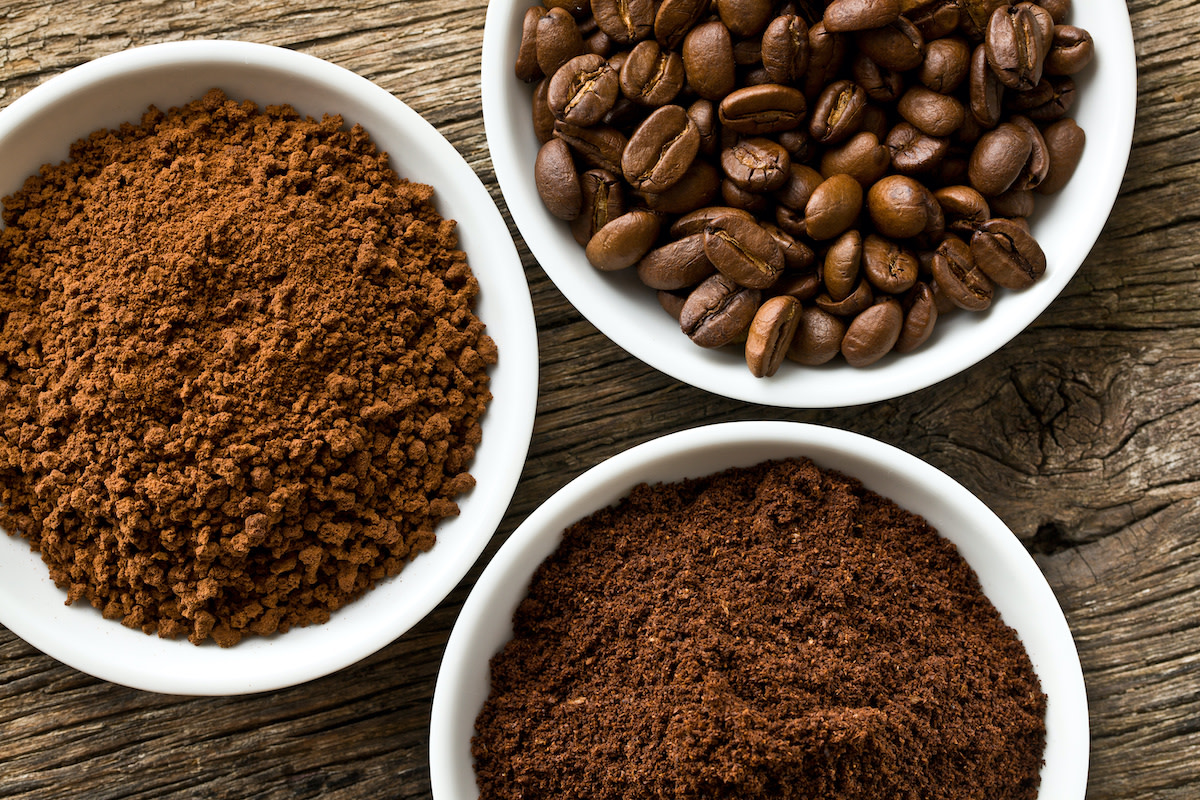How to Store Ground Coffee: 7 Tips for Coffee Storage
Written by MasterClass
Last updated: Dec 14, 2021 • 4 min read
Fresh coffee comes from newly ground coffee and espresso beans, so it should come as no surprise that aspiring coffee connoisseurs should learn how to store ground coffee in a way that maintains maximum freshness for as long as possible.
Learn From the Best
What Is Ground Coffee?
Ground coffee is what’s left over when whole coffee beans pass through a coffee grinder. Many grocery stores and coffee shops offer both whole and ground coffee beans for purchase and consumption.
How Long Do Coffee Grounds Stay Fresh?
Coffee grounds lose their freshness a bit quicker than whole beans—the former will start staling after a week, whereas the latter might take a month. This is due, in part, to the oxidation process coffee undergoes, and coffee grounds lose freshness even quicker than whole beans because the grinding speeds up this process.
Coffee roasters harvest the initially green beans and heat them until they turn brown. As soon as this roasting process is over, it becomes a race against time to keep coffee fresh. As carbon dioxide leaves the beans and oxygen rushes in, they begin to lose their powerful and trademark taste in increments. Producers include small, one-way valves on bags of coffee so the bag can release carbon dioxide without taking on new oxygen. This keeps the beans fresh as long as possible.
7 Ground Coffee Storage Tips
Coffee lovers should be able to store their grounds in a way that maximizes freshness far into the future. Consider these seven tips for storing coffee beans after you have ground them:
- 1. Avoid the refrigerator. To keep coffee grounds at their freshest, you should avoid storing them in areas with lots of moisture—and your refrigerator is one of the dampest places in your kitchen. This sort of humidity can cause your grounds’ moisture to evaporate, leaving you with stale coffee.
- 2. Check dates on packaging. To ensure your coffee stays fresh, check both the expiration date and the roast date provided on the packaging. You should treat the expiration date as a point of no return, but aim to grind and drink all the coffee in any given bag within three or four weeks of its roast date even if that’s earlier.
- 3. Freeze the grounds. Storing batches of grounds in your freezer can help your coffee last. Although you should be careful about freezer burn, it’s probably the safest place for long-term storage. Make sure to defrost your grounds for a day or so before use, even if you’re making cold brew coffee.
- 4. Seal the grounds in an airtight container. The most typical coffee container you’ll see in stores is vacuum-sealed original packaging. This sealed bag of coffee is the gold standard of coffee storage, so you should try to emulate it with your own coffee containers, too. Whether you use a bag, canister, or mason jar, make sure you seal your grounds as tightly as possible.
- 5. Store the grounds in a dry place. Coffee drinkers should do their best to keep coffee grounds in an area as devoid of moisture as possible. Storing ground coffee at room temperature in a dry place will grant you a decent shelf life—once you add a sealed container into the mix, that length of time will extend. Your freezer and cabinets are both suitable but avoid your refrigerator.
- 6. Use the grounds within a month. No matter how tightly sealed the storage container or how well-roasted the specialty coffee, all coffee grounds and beans go bad eventually. As a general rule of thumb, you should always attempt to use any coffee you buy within a month—if it’s ground, within a week is even more appropriate.
- 7. Wait to grind. Try to store your coffee beans whole until you’re close to drinking them—once you’re ready, grind away. Whole bean coffee will invariably last much longer than ground coffee, so try to time putting your beans in the grinder within a week of when you plan to use them.
3 Benefits of Ground Coffee
Grinding coffee is essential to making coffee in general, but there are other perks. Here are just three reasons why you might grind coffee:
- 1. Easier to store: Once you grind coffee into powder, it becomes far more pliable and easy to store. Pre-ground coffee will fit into plastic containers just fine, but ground coffee can adapt more easily to different types of storage areas.
- 2. Faster to brew: Odds are your brewed coffee maker requires you to use ground coffee instead of whole beans. That’s partially because coffee grounds have more surface area than whole beans for hot water to run through.
- 3. Helps save money: Buying a specially brewed cup of coffee or espresso drink at a coffee shop definitely has its place, but purchasing fresh beans to make coffee of your own is often the more cost-effective option. Grinding your own coffee can save you money.
Want to Learn More About Cooking?
Become a better chef with the MasterClass Annual Membership. Gain access to exclusive video lessons taught by the world’s best, including Gordon Ramsay, Gabriela Cámara, Chef Thomas Keller, Dominique Ansel, Yotam Ottolenghi, Alice Waters, and more.
